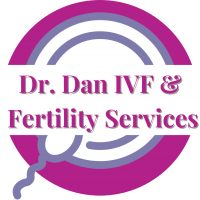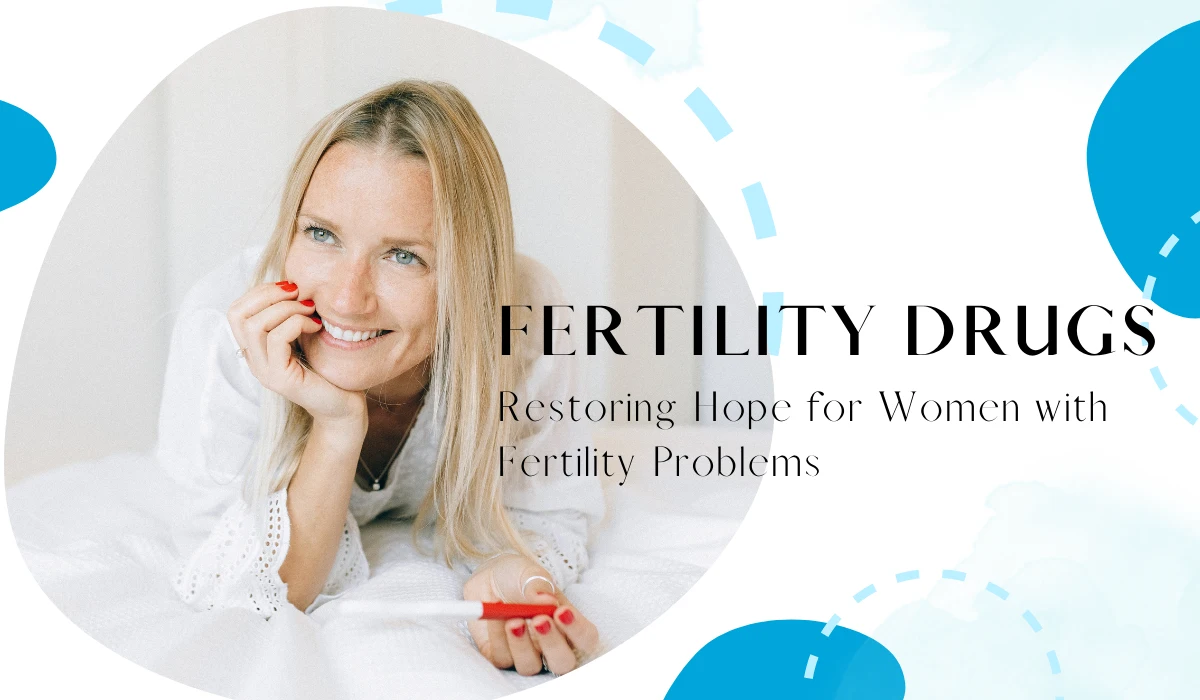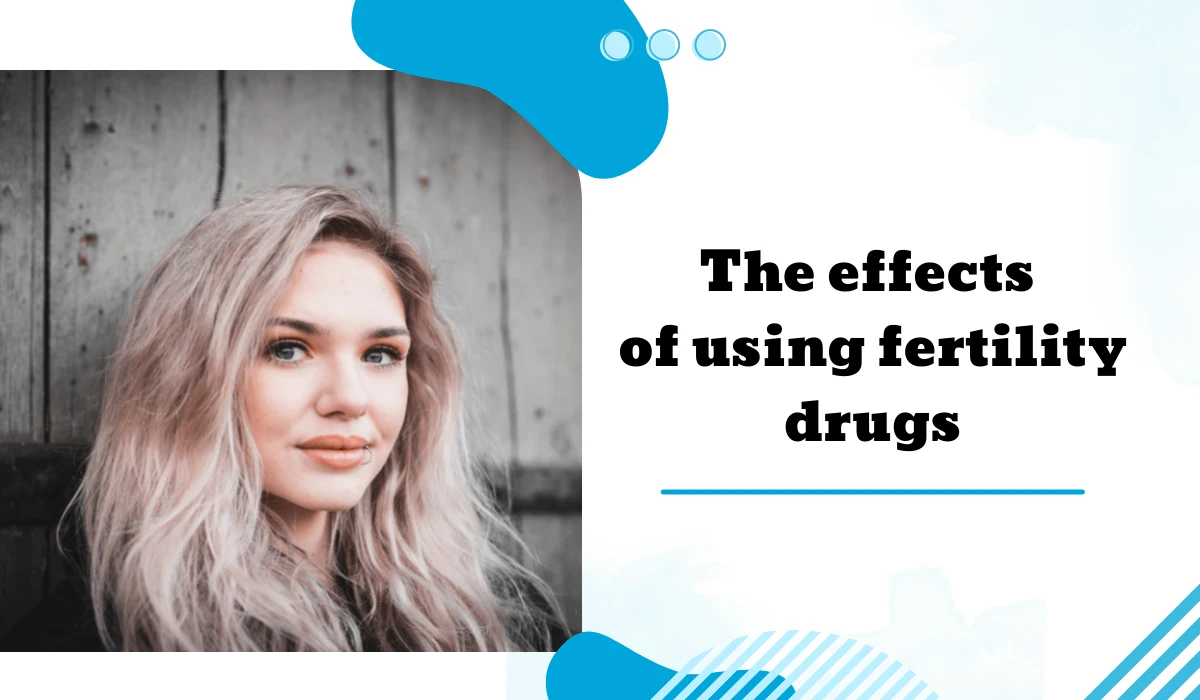Fertility drugs are used to treat women who have fertility issues. These issues can be defined as not being able to get pregnant after trying for at least one year. There are many different types of fertility drugs such as Clomid, Femara, and FSH. We will dive into what these drugs are, how they work, and how to properly use them
Defining what fertility drugs are
Fertility drugs, just as stated above, are medications that aim to treat issues with fertility among women. There are several fertility issues that may arise. Some of these issues include not being able to ovulate, irregularities in follicle growth, no eggs released during ovulation, and problems with sperm movement or function among males. Fertility drugs are either used on their own or combined with other fertility treatments depending on the patient’s situation.
Fertility drugs were first used in the 1940s to help women with ovulation issues. Since then, these drugs have been found to be useful in helping with infertility issues as well. These drugs may help you get pregnant sooner by stimulating your ovarian and uterine systems and/or improving egg and embryo quality (for males and females). They can also make the process of IVF work better for some women.
Fertility drugs are known by many names, and each of them has different purposes. Some of these names include ovulation induction, superovulation, and controlled ovarian hyperstimulation.
Some popular names of fertility drugs are Clomid, Femera, and FSH. These drugs are known to help stimulate ovulation and increase egg/embryo quality. Other fertility medications include HCG, Metformin, IUI, and IVF.
Clomid is one of the most popular fertility drugs out there that women use when having fertility issues. This drug helps with the growth of follicles, ovulation, and increases the possibility of having more eggs. Clomid is often given to women once they go off birth control because it can help with hormone regulation.
We will be talking about other kinds of fertility drugs below, so we suggest that you keep on reading.
Why fertility drugs are a great choice for women who have fertility issues
There are several reasons why a woman may need fertility drugs, and there are also several reasons why fertility drugs can be highly beneficial once needed.
One of the main reasons why fertility drugs are a great choice for women, is of course, that they can help them get pregnant. Fertility drugs can also help you to avoid miscarriage and chromosomal abnormalities by improving embryo quality. These drugs are great for women who cannot ovulate on their own, women with irregular cycles, or women who don’t produce eggs.
Another reason why fertility drugs are beneficial is that they can be used in combination with other fertility treatments. For women with male factor fertility issues or unexplained problems when it comes to fertility, they can be especially beneficial. These drugs are often given to patients who are having issues with ovulation.
Another impressive reason is that fertility drugs can enhance the process of IVF. By taking Clomid and Femera, you can help your chances of getting pregnant by enhancing embryo quality. Both of these drugs stimulate the ovaries to produce eggs which you can then use for IVF or put back into the uterus with an IUI procedure.
Another important benefit of using fertility drugs is that they can help increase your chances of having multiples. This is especially beneficial for women who are trying to avoid miscarriage or chromosomal abnormalities.
One other important reason why you should use fertility drugs is that they are non-invasive. Many women are afraid of invasive treatments, which is why natural therapies are often their preference. Although invasive treatments can be beneficial in some cases, they come with risks. With fertility drugs, there isn’t any risk because it simply helps your body to produce more eggs which can then be used for whatever you want, whether it’s IVF or putting the eggs back into your uterus with an IUI.
If you are looking for a natural treatment to help get pregnant, fertility drugs are great because they are not invasive or dangerous in any way. All women have to do is take one pill each day and let the drugs do the work for them.
Health experts all agree that fertility drugs are great for women who have fertility issues, but they do say that you should be careful with how many follicles you produce as well as how many eggs come out of your ovaries. You don’t want to overproduce because this can lead to miscarriage and chromosomal abnormalities.
Read more about Follicle Stimulating Hormone
How fertility drugs work inside the body
The way fertility drugs work inside the human body varies from one drug to the next. For example, Clomid works by stimulating the ovaries into producing more eggs which you can then use for IVF or IUI to implant them into the uterus.. Femera helps with egg quality and the maturation of eggs so that there aren’t any chromosomal abnormalities in embryos when it’s time
HCG and Pregnyl work by replacing LH and FSH which helps you to produce eggs. This is great for women who don’t ovulate on their own or don’t produce eggs because it stimulates the ovaries into producing more eggs than they usually would.
This is how fertility drugs work, but keep in mind that there are several different kinds of drugs that all do something different. Some are very similar, but each one has its own unique effect on the patient’s body.
The positive effects of using fertility drugs
There are a lot of positive effects that can be gained from using fertility drugs. Each one has its own respective list of positive effects, but the ones in the list below are some of the most common ones that are present in most fertility drugs that are available out there:
- An increased success rate of IVF and IUI: Women who take fertility drugs have a higher success rate when it comes to trying to conceive. This is because they are able to produce more eggs than they normally would which results in a greater concentration of embryos that can then be used for IVF or IUI.
- Increase your chances of having multiples: Women who are trying to conceive often have a greater chance of having multiples because fertility drugs allow you to produce more eggs which means that there is a higher chance that they will release more than one at a time.
- Better egg quality: Women who have fertility issues or diseases usually have poor egg quality because their hormones are out of balance. Taking fertility drugs can help you to restore your hormone balance so that eggs don’t have any chromosomal abnormalities.
- Enhanced levels of arousal and libido: Women who usually have a low libido level and arousal will start to feel like they did when they were younger once they start taking fertility drugs. This is because the drug helps your body produce more hormones that can then be used by the brain for these purposes.
- Increase in physical appearance: Women who take fertility drugs and become pregnant will usually report that their physical appearance improves. This is because the hormone balance that is being restored by fertility drugs helps to improve the overall complexion as well as keep you from feeling sick all of the time.
- Improved mood: Lastly, women who take fertility drugs will usually notice that they have a better mood than when they didn’t take the drug. This is because your hormone balance is restored so you no longer feel the symptoms of menopause and other hormonal-related ailments.
There are other positive effects that can be experienced when using fertility drugs, but the ones above are the most common ones. Keep in mind that not every woman will experience these symptoms, but if you do it’s a good sign that the drug is working.
The potential side effects of abusing fertility drugs
Despite all the praises and positive effects of fertility drugs, abusing them can still lead to some undesirable consequences. Each drug comes with its set of respective negative side effects, but the ones in the list below are some of them:
- Higher risk of ovarian hyperstimulation syndrome: Some women who take these drugs end up getting ovarian hyperstimulation syndrome. This is a disease characterized by the overproduction of eggs which can cause pain, bloating, nausea, vomiting, and other effects that are oftentimes dangerous if not treated right away.
- Decrease in fertility rate after quitting: Women who want to get pregnant might find that it is harder than before if they stop taking these drugs. This is because the concentration of eggs and hormone levels can decrease to a point where they might feel sick again, so be careful when quitting fertility drugs.
- Increase in bad habits: Some women who take drugs for this particular reason go on to develop other detrimental habits such as smoking, drinking excessively, using drugs, and other vices that will make it even harder to conceive.
- Increase in potential health risks: Women who take these drugs can experience heart problems, breathing issues, addiction, diabetes, headaches, vision problems which are all the effects of hormone imbalances. If not treated right away they can lead to even more serious diseases and ailments.
- Permanent fertility problems: Lastly, some women can develop permanent infertility if they abuse fertility drugs for a long time. Although this is the least likely side effect to occur it’s still possible so be careful when taking these drugs. This is why it is highly recommended that you only take them under your doctor’s supervision and if you’re actually suffering from a disease or condition that requires the constant use of these drugs.
Always keep in mind that these potential side effects can and will only occur if the dosages of the drugs are not monitored by a professional. If you misuse fertility drugs and do not follow the recommended dosages then it’s entirely possible that one or more of these side effects can occur.
However, if you’re actually suffering from some sort of disease and your doctor prescribes you fertility drugs then you should be fine as long as you take them under your doctor’s direction. If you notice any worrisome side effects whether it be after using these drugs or when quitting them then always inform your doctor right away so they can help you safely get through these issues and continue living a healthy life.
Read more about Serophene
The common dosage instructions for fertility drugs
Just as with the positive and negative effects, each fertility drug has its own respective dosage instructions that must be followed to the letter.
One of these is human chorionic gonadotropin (hCG), which comes in a 10,000 IU dosage per 0.1ml injection and should be given within 5 – 7 days after ovulation via the intramuscular route. If you want to know the exact time of ovulation then your doctor can perform ultrasound tests to help determine this.
Another dosage instruction is human menopausal gonadotropin (hMG), which has 75 IU per 0.1ml injection and should be given once daily for 5 days via the subcutaneous route.
Then there’s also follicle-stimulating hormone (FSH) at 450 IU per 0.1ml injection administered once daily for 5 days via the subcutaneous route.
And finally, the last dosage instruction is FSH Fertinex at 225 IU per 0.1ml injection which should be given once every 2 or 3 days via intravenous infusion over a period of 4 – 6 days.
You’ll always need to carefully follow your doctor’s recommended dosage instructions so you can safely take these drugs and experience pleasant effects without having to worry about any negative side effects.
As long as you only follow the correct dosage then everything will turn out just fine, but if you decide to abuse fertility drugs then that will open up a whole new set of problems. Always keep in mind that fertility drugs are only meant to help you, not harm you.
Can fertility drugs be stacked for better results?
Fertility drugs like most other drugs can be stacked, but only if your doctor says it’s okay.
When fertility drugs are stacked they’re usually closely related to one another and can be taken at the same time or just a day apart. For example, human chorionic gonadotropin (hCG) is commonly stacked with follicle-stimulating hormone FSH which boosts the success rate of the drugs.
In fact, just about any fertility drug can be stacked with other related ones to produce better results. However, this is only safe if your doctor has given you their prior approval and they’re supervising everything that you do. In most cases stacking fertility drugs won’t cause any problems, but you can never be too safe so always stick to your doctor’s dosage instructions.
Another thing that should be noted is that fertility drugs are highly effective when taken together, but if they’re not then it just goes back to reason number one which is that you need to see a professional first before taking any of these medications or supplements. Always remember that there’s a reason why healthcare professionals are the ones who prescribe drugs because they’re much more skilled and knowledgeable about how certain medications work to provide you with amazing results.
Some people are under the impression that it’s okay to self-prescribe fertility drugs, but this is completely against medical guidelines for several reasons which I’ve already discussed previously. The main reason why fertility drugs are only available by prescription is that they contain powerful hormones that can cause severe problems if not used properly so it’s necessary to have strict dosage instructions followed by a pro.
What are some examples of fertility drugs?
Just as we have repeatedly mentioned above, there are many different forms of fertility drugs that are used to boost the odds of getting pregnant naturally.
The most common fertility drugs include:
- Human chorionic gonadotropin (hCG): This is the drug that’s commonly used to trigger ovulation, but it can also be used in conjunction with intrauterine insemination (IUI) during the luteal phase.
- Lupron: This is a gonadotropin-releasing hormone (GnRH) agonist which will help your body produce multiple eggs whether you’re trying to conceive naturally or through in vitro fertilization (IVF).
- Follicle-stimulating hormone (FSH): This is a natural protein that contains high amounts of follicle-stimulating hormone which will help stimulate the growth and development of eggs.
- Femara: This is the main drug that’s used to stimulate ovulation during in vitro fertilization (IVF) and has been proven to increase your odds of getting pregnant.
- Letrozole: This is another fertility drug that’s commonly used for IVF treatments because it stimulates ovulation while reducing the amount of estrogen in your body.
These are some of the most popular fertility drugs that you’ll likely be using if you’re undergoing fertility treatments, but there are many others.
Frequently Asked Questions about fertility drugs
Are there fertility drugs for men?
Fertility drugs for men are becoming more and more popular in recent years because there’s such a high demand for them. Although fertility drugs aren’t available for men, this doesn’t mean that they can’t be used to treat male fertility issues.
Are fertility drugs safe for minors?
First, it’s important to understand that when you’re considering fertility treatment options then minors should be seen by a doctor who is also qualified in dealing with adolescents. In most cases, the doctor will recommend that an adult goes through fertility treatments with them because children can’t give informed consent which means that they can’t fully understand what the drugs are going for.
What are the side effects for women taking fertility drugs?
When it comes to the risks that come with taking fertility drugs then there isn’t much you should be concerned about as long as they’re taken correctly. The most common side effect is a mild increase in your risk of having ovarian hyperstimulation syndrome (OHSS), but there’s nothing to worry about if you’re monitored correctly.
Summary and conclusion
Fertility drugs are commonly used during fertility treatments to improve the chances of getting pregnant naturally. They are only available by prescription because they can be risky if not taken under close supervision, so always seek professional advice before starting your fertility therapy journey.




